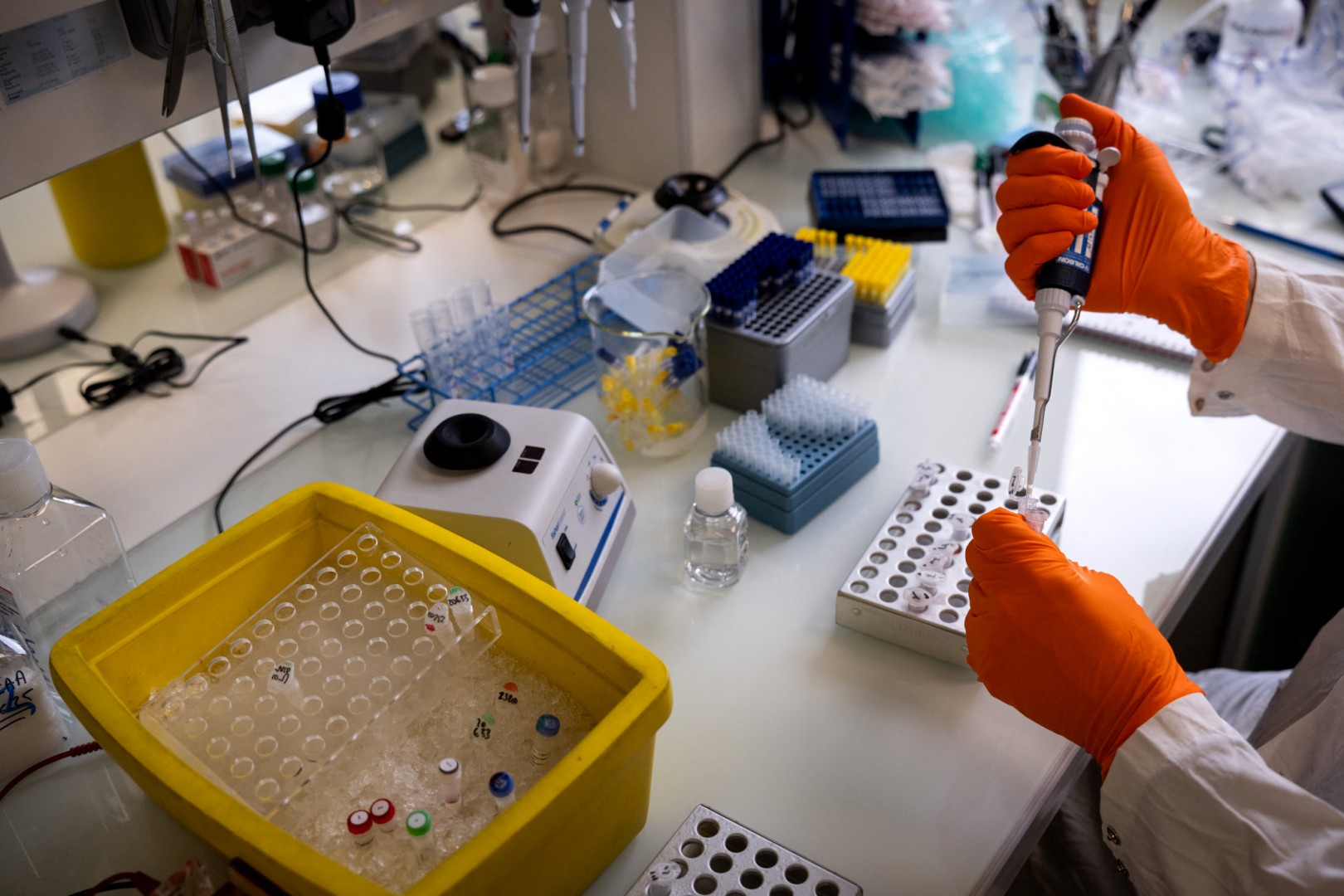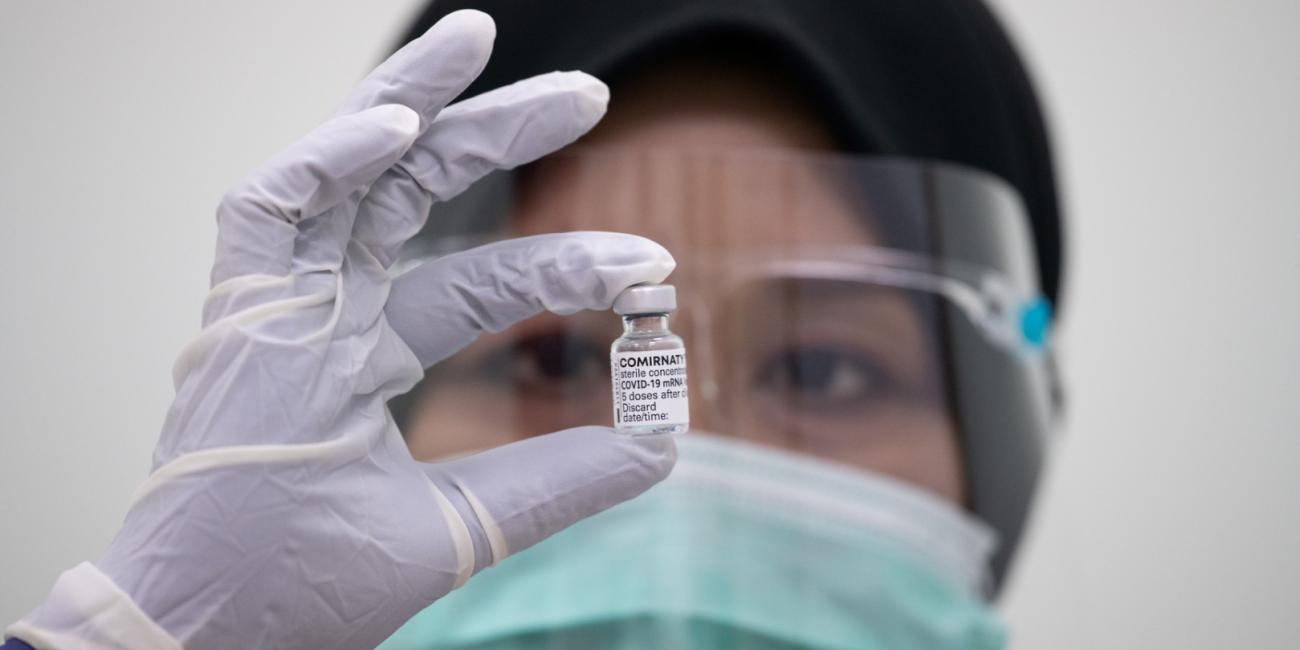
Exaggerated claims about Russia’s cancer vaccine Enteromix sweep across Africa
- Published on September 29, 2025 at 13:37
- Updated on October 2, 2025 at 18:25
- 8 min read
- By Tolera FIKRU GEMTA, AFP Ethiopia
“Russia’s Enteromix, a personalized mRNA-based cancer vaccine, has demonstrated 100% Efficacy and safety in clinical trials, offering a potential breakthrough in cancer treatment (sic),” reads an English post from Cameroon dated September 8, 2025, and shared more than 1,800 times.

A similar post shared more than 600 times by a Facebook page that frequently publishes content from South Africa further described the vaccine as a “cure for cancer” and claimed that Enteromix would be available for general use from September 9, 2025, at no cost.
Other posts extolling the purported benefits of Enteromix were also shared on Facebook in Ethiopian languages.
“Russia has ordered the new cancer vaccine to be administered to all patients receiving treatments in health centres,” reads an Amharic post shared on Facebook on September 7, 2025.

mRNA vaccine
Several Russian cancer vaccines are currently in development, according to statements by Russian officials and scientists.
One of these is Enteromix, which uses viruses to attack tumours. Another one uses mRNA technology. These seem to have been conflated in the claims circulating online.
mRNA vaccines work by delivering snippets of genetic material that instruct the body’s cells to produce a specific protein (archived here). Once the protein is produced, the body’s immune system responds by generating antibodies to recognise and fight it, thereby preparing the body to defend against the actual virus.
This approach was successfully applied in 2020 by Pfizer-BioNTech and Moderna, whose vaccines used mRNA technology to combat Covid-19.
Dr Patrick Ott, a Harvard medical school professor and clinical director at Dana Farber Cancer Institute (DFCI), said the principle is similar in developing mRNA-based cancer vaccines (archived here).
“However, cancer vaccine development is far more complex than Covid-19 vaccines owing to the diversity and complexity of cancer cells,” Ott told AFP Fact Check.
According to a World Health Organization (WHO) report from February 2025, cancer is one of the leading causes of mortality worldwide and was responsible for almost 10 million deaths – one in six – in 2020. The most common types are breast, lung, colon, rectum and prostate cancer (archived here).
Stringent process
The development and approval of vaccines, according to Dr Lennard Lee, a professor at the University of Oxford and a consultant in medical oncology, follow a well-defined sequence (archived here). He said it begins with preclinical studies in a laboratory and the use of animal models to assess immune response and basic safety.
Phase 1 human trials then test safety and dosage in small groups of patients, said Lee, followed by Phase 2 trials on larger groups to look for early signs of clinical benefit while continuing safety monitoring. Phase 3 trials involve large, controlled studies to confirm the vaccine’s effectiveness on outcomes such as recurrence rates, progression-free survival, or overall survival.
In parallel, regulators evaluate manufacturing quality, consistency, and safety monitoring. Only through this careful, step-by-step process can confidence be established that a cancer vaccine is truly safe and effective, said Lee.
The process described by Lee is further explained by the WHO in this video (archived here).
Transparent data, peer-reviewed evidence and robust manufacturing standards are also essential. “Without these, patients and clinicians will struggle to build the trust that is essential in cancer care,” Lee told AFP Fact Check.
Ott added that vaccine regulatory systems may vary across the world and not all of them are equally as rigorous.
“Regardless of the regulatory system, clinical trial data is essential to substantiate claims that a vaccine is safe and effective for general use,” he said.
AFP Fact Check examines the claims about Enteromix.
Ready for market?
There is no evidence to show that Enteromix has been released to the public, let alone approved for general use, be it in Russia or anywhere else in the world.
But establishing an accurate timeline covering the precise development of Enteromix and other Russian cancer vaccines so far is somewhat clouded by conflicting statements in reports from Russia found online by AFP Fact Check.
On September 5, 2025, Veronika Skvortsova, the head of Russia’s Federal Medical and Biological Agency, announced that a cancer vaccine had successfully completed preclinical studies and had proven its safety with high efficacy (archived here).
“The vaccine is ready for use; we are awaiting approval,” she was quoted as saying by Izvestia, a Russian state-owned news website. It is not clear what approval means in this context, but procedurally the next step would be the start of phased clinical trials.
“At the end of summer 2025, we submitted documents to the Ministry of Health seeking approval for the clinical use of this vaccine. The research lasted several years. The last three years were spent in regulated preclinical trials,” Skvortsova had reportedly said.

Three months before Skvortsova’s interview, the Russian Ministry of Health announced that specialists had begun clinical trials of Enteromix in June 2025, enrolling 48 volunteers (archived here).
Andrey Kaprin, the ministry’s chief oncologist and director general of the National Medical Research Radiological Centre, described the study as “an open, single-centre, Phase I clinical trial”.
The centre run by Kaprin says on its website that a “full cycle of preclinical studies has been completed” over the “past few years”, adding that “it is important to note that clinical trials and patient recruitment for the first phase will begin in late 2024, early 2025” (archived here).
Lee explained why concrete clinical evidence is required before the vaccine can be approved for general use.
“Enrolling only 48 participants would generally be considered a very small, early-stage study – more in line with a Phase 1 or exploratory Phase 2 trial,” he said.
Lee added that a Phase 3 study, which normally involves hundreds to thousands of patients, is essential to generate robust data on safety, efficacy, and durability of benefit.
“I can find no peer-reviewed academic evidence of this vaccine Enteromix being tested in human clinical trials,” said Lee.
“For a therapy as important as a cancer vaccine, there must be visible evidence and openness.”
Total efficacy?
Labelling Enteromix – or any other Russian cancer vaccine under development – a “cure for cancer” is not backed by evidence, despite the claim that the vaccine demonstrated “100 percent” efficacy in eliminating cancer cells during trials.
Even the most optimistic statements from Russian officials fall short of describing the vaccines as a silver bullet for cancer.
In her interview with Izvestia, Skvortsova said the vaccine primarily focuses on colorectal cancer and may eventually expand to treat two other types of cancers — glioblastoma, one of the most malignant brain tumours, and special types of melanoma, a skin cancer.
This means it is not, as claimed, a cure for all types of cancers.
Skvortsova added that the preclinical trials “demonstrated the vaccine’s safety” and “high efficacy in reducing tumour size and slowing tumour growth … by 60-80 percent”.
Interviewed by the Russian media group RBC in June 2024, Vyacheslav Kosorukov, Director of the Research Institute for Experimental Diagnostics and Tumor Therapy at the N.N. Blokhin National Medical Research Center of Oncology, said of their work in developing a cancer vaccine: “The technology we’re discussing is groundbreaking, but it’s not a panacea, a 'golden pill' for all cancers” (archived here).
Ott said the claims of total efficacy are far from reality.
“There is currently no cancer therapy that provides a 100 percent cure,” Ott said, adding “the term ‘cure’ itself is often imprecise, as many cancers remain incurable. The claim that a vaccine cures cancer completely is simply not believable.”
Free by September 2025?
Again, no regulatory approval, large-scale trials, or distribution plans confirm this timeframe.
Media group RBC quoted the Russian health ministry’s Kaprin saying in December 2024 that Enteromix would cost the state 300,000 rubles (about $3,500) per treatment, but patients would receive it free of charge (archived here).
According to Ott, cancer vaccine development is complex. He highlighted logistical hurdles: mRNA vaccines require strict cold-chain storage and advanced infrastructure, making rapid, free distribution in 2025 unrealistic.
“It is highly unlikely that such a vaccine could be made accessible for general use within a month.”
Lee noted the idea of free access was feasible in national health systems once efficacy is proven, but added: “Until credible clinical evidence is provided, claims of free and general access must be treated with caution.”
He added that a three-month period is generally far too short to draw meaningful conclusions about long-term cancer outcomes, such as recurrence, survival, or sustained immune response.
Asked about Enteromix, the WHO told AFP Fact Check via email: “WHO has no formal collaboration with the project.”
WHO clarified that national or regional regulators are responsible for vaccine approval, while its role is mainly limited to providing prequalification support.
mRNA-4157
Meanwhile, the cancer vaccine candidate mRNA-4157, developed by Moderna and Merck, has undergone full and transparent clinical trials.
mRNA-4157 targets melanoma, a serious type of skin cancer.
It first completed preclinical studies in July 2019, then entered into Phase I trials to confirm safety in a small group of 90 participants. A Phase II trial followed in September 2021 involving around 157 melanoma patients, demonstrating a 40-45 percent reduction in risk of recurrence when combined with pembrolizumab — a humanised antibody used in cancer immunotherapy (archived here).
Building on these results, the programme has advanced to Phase III trials enrolling more than 1,000 participants worldwide to confirm efficacy and gain eventual regulatory approval (archived here). While mRNA-4157 has received “FDA Breakthrough Therapy” status, it is still under investigation.
The US Food and Drug Administration (FDA) grants Breakthrough Therapy designation to speed up development of treatments for serious conditions when early evidence suggests they may offer significant improvement over existing therapies on key clinical outcomes.
The trial processes for mRNA-4157 have taken more than six years and still it is not on the market.
In conclusion, while Russia’s cancer vaccine research is potentially promising, the exaggerated online claims about Enteromix are misleading.
Corrects to state that Enteromix is not an mRNA vaccine and adds context about Russia developing multiple cancer vaccinesOctober 2, 2025 Corrects to state that Enteromix is not an mRNA vaccine and adds context about Russia developing multiple cancer vaccines
Copyright © AFP 2017-2026. Any commercial use of this content requires a subscription. Click here to find out more.
Is there content that you would like AFP to fact-check? Get in touch.
Contact us




